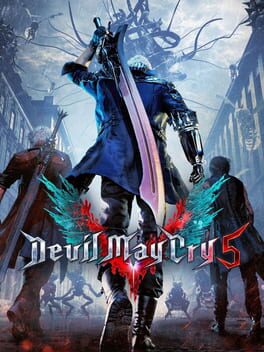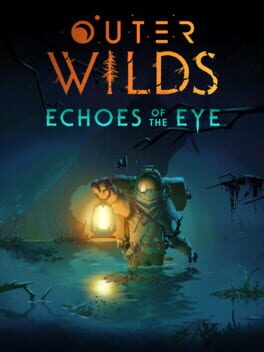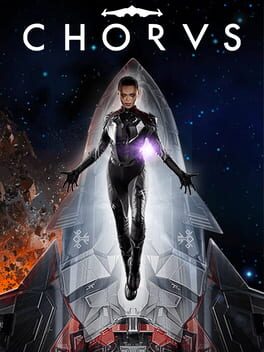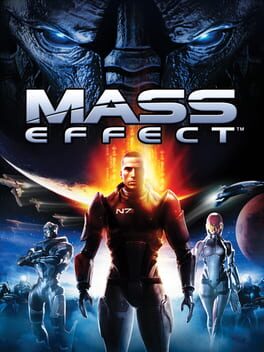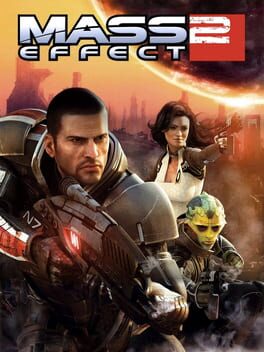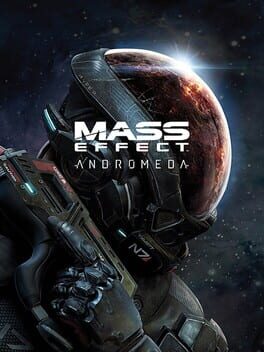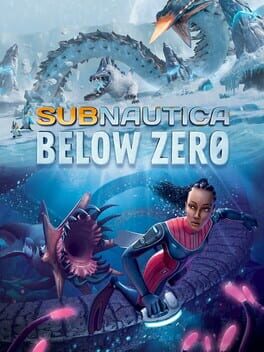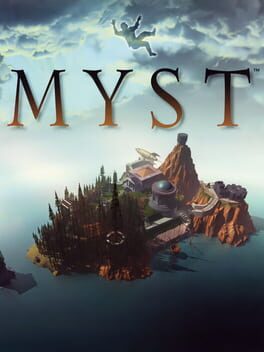spvrinna
Breath of the Wild is a holy matrimony of carefully-considered world-design and a near-boundless devotion to player agency. The misguided inclusion of RPG elements, voice acting and the unfortunate removal of one-too-many classic Zelda design elements do not meaningfully detract from what the game accomplishes successfully. This will remain the king of open-world games until such a day a sequel finishes what Breath of the Wild starts.
2016
Dark Souls III is both an unfortunate capitulation to the misguided backlash of its predecessor, and also, a lachrymose homage to what fans fondly remember about the first game. It feels less artistically striking than either entry in the trilogy, but it's also the most consistent and balanced. If Dark Souls put you off, I'd recommend starting here instead.
2019
A total rejection of an industry-wide obsession with the artistic successes and clout of Film, Devil May Cry 5 is unashamedly a video game; a Playstation 2-era devotion to gameplay supremacy and narrative earnestness, but with modern, AAA production values. It feels lost in time, the kind of game they don't make anymore; it shouldn't exist, but somehow it does, and I couldn't be more pleased with the result.
2019
My platonic ideal of a video game; an astounding achievement of design and artistry. Every facet of the game is handled with mastodontic reverence and consideration of the game's experiential goals for the player. Unlike any game I've ever experienced, Outer Wilds weaponizes hindsight so strongly that it feels personal, as if completion equates to the denial of pleasures in life you cannot revert to living without; you will evangelize of your own volition to anyone who will listen, just to taste again the sweet condensation of the first-time-playthrough experience vicariously through those you convert. I pity those who have not yet played this game, but I grieve for those of us who have, and won't be able to play it the same way ever again. Outer Wilds is more than just a video game; it's a revelation.
This is a DLC to Outer Wilds the same way Majora's Mask was to Ocarina of Time; that is to say, it isn't. Reasonable minds will differ on whether this is artistically superior to the base game or not; I, for one, believe Outer Wilds to be the more consistent game in terms of quality, where Echoes has larger peaks and valleys; while I didn't out-right dislike anything about Outer Wilds, there are things I dislike about this game. Conversely, though, there's nothing in Outer Wilds I like more than what I like about Echoes. What's important here is that, whatever Mobius needed to accomplish to solidify their design credentials, they achieved with a seemingly effortless confidence. This smaller-scale, stygian successor to the design philosophies of the base game manages to somehow improve the overall Outer Wilds experience.
2021
2021
An unfortunately unbalanced game. Visually, the game looks incredible; until this game, I'd never seen a 3D metroidvania that I didn't think would look better in 2D. Samus is animated and designed perfectly, with just the right amount of calm-and-collected professionalism I'd expect from a bounty hunter, but with a human personality seeping through as she finds herself in increasingly dangerous situations. The drip-fed nature of the upgrades feels perfectly paced, and each upgrade meaningfully enhances your movement and combat abilities in intuitive ways.
The problem is that Metroid still feels behind most of the games it inspired; the upgrades might enhance the experience more than other metroidvanias, but the controls used to engage with those upgrades feel remarkably unintuitive in comparison; the game might be one of the most visually impressive games on the Switch, but also fails to perform consistently on the hardware (especially during key moments, such as boss fights, where specific button inputs and timing are necessary). The bigger problem, however, is the cryptic nature of progression. Hiding the only way forward through unclear means, such as revisiting an old part of the gigantic, labyrinthine map you're likely to have forgotten, or shooting an inconspicuous block at the end of a hallway might be "classic Metroid," but it's also "very frustrating." The best games nudge the player in the right direction so subtly that they don't even notice, but Dread is obsessed with not giving fans an excuse to call the game "too casual".
The problem is that Metroid still feels behind most of the games it inspired; the upgrades might enhance the experience more than other metroidvanias, but the controls used to engage with those upgrades feel remarkably unintuitive in comparison; the game might be one of the most visually impressive games on the Switch, but also fails to perform consistently on the hardware (especially during key moments, such as boss fights, where specific button inputs and timing are necessary). The bigger problem, however, is the cryptic nature of progression. Hiding the only way forward through unclear means, such as revisiting an old part of the gigantic, labyrinthine map you're likely to have forgotten, or shooting an inconspicuous block at the end of a hallway might be "classic Metroid," but it's also "very frustrating." The best games nudge the player in the right direction so subtly that they don't even notice, but Dread is obsessed with not giving fans an excuse to call the game "too casual".
2007
Mass Effect is to Video Games what A New Hope is to film. Bioware polishes their Knights of the Old Republic template to an immaculate shine, but they also craft a story with seamless world-building, unforgettable characters and overall writing and acting quality that constantly managed to surprise me. Whatever the series would become, Mass Effect stands alone is an engaging role playing experience everyone should play.
2010
Mass Effect 2 goes from emulating the structure and themes of A New Hope to something totally unique: an episodic, interpersonal, character-driven story where the real adventure really is the friends we make along the way.
More than this, the role-playing aspect is more focused here than in Mass Effect, limiting the total potential number of possible "shades" of Shepard, but giving the player more maneuverability within those shades. This might sound like a drawback -- fewer versions of Shepard to play as -- but in Mass Effect, a mostly-paragon Shepard would have been incentivized to keep playing as that version of Shepard, lest they accidentally become a petulant, mostly irredeemable Shepard; this could create some serious disconnect for the player. The reduced extremity in how Shepard can be characterized in Mass Effect 2 allows much more player control over the kind of Shepard they want to role-play as, sometimes renegade, sometimes paragon. If you even liked Mass Effect, you will love this.
More than this, the role-playing aspect is more focused here than in Mass Effect, limiting the total potential number of possible "shades" of Shepard, but giving the player more maneuverability within those shades. This might sound like a drawback -- fewer versions of Shepard to play as -- but in Mass Effect, a mostly-paragon Shepard would have been incentivized to keep playing as that version of Shepard, lest they accidentally become a petulant, mostly irredeemable Shepard; this could create some serious disconnect for the player. The reduced extremity in how Shepard can be characterized in Mass Effect 2 allows much more player control over the kind of Shepard they want to role-play as, sometimes renegade, sometimes paragon. If you even liked Mass Effect, you will love this.
If you play on PC to improve load times, mod out the more annoying aspects of the gameplay, improve the character creation process and NPC appearances across the board, play on the easiest difficulty and maybe smoke some weed, you can just barely glean the shadows of old Bioware greatness dancing on the cavern walls. If you don't do any of that, the game is unplayable.
2014
2018
Aggressively-mid in every respect. This game is so obsessed with being the "definitive Spider-man experience" that it fails to carve out any unique identity at all; it takes everything that isn't nailed to the floor from Arkham, and fails to utilize any of what worked from the previous Spider-man games, (incredibly) flawed as they may have been. Ultimate Spider-man is more striking visually, Shattered Dimensions is more strongly characterized, 2000 is more playfully in-touch with how Spider-man is remembered. Unlike those games, this one will be forgotten in the next era, whenever the next "definitive" Spider-man game is released.
1993
Myst falls into the category of great games that, with a good remake, would easily be considered classics. I found myself immediately gripped by the world, scouring the environments for any potential clue, reading personal journal entries and taking actual, physical notes with a pen and paper of what I considered to be important. When I finally came across the critical information I lacked, I often almost instantly formed a hypothesis based on it. And the game tends to earn this kind of engagement, because the puzzles are simply fantastic. Both mechanically and internally, they make perfect sense and require the player to fill in the logical leaps based on available information. It never condescends, but neither does it feel esoteric.
Beyond mechanics, the game has an undeniable 90's charm to it, with cheesy voice (over-)acting and pre-recorded live-action cutscenes. Considering how antiquated it is, it's all surprisingly engaging, and the game (rightfully) lacks any kind of shame in it's story, presentation and performances; it plays everything absolutely straight, and I adore that kind of earnestness in any creative endeavor. These story moments never overstay their welcome, in fact most can simply be ignored, but I was surprised at how compelling it became once I understood how this "universe" works internally. All of this is rounded off by some surprisingly great music, which plays at key moments in the game to cap-off puzzle development; it has a style so off-the-wall, so 90's, you likely haven't seen much anything like it since, giving Myst a truly unique identity.
I didn't love all of it, though.
Myst has all pre-rendered backgrounds which have aged about as well as you'd expect from an early-90's game. This is par for the course with point-and-click games, and it never looks ugly (in fact it's quite the contrary), but the trouble comes from two distinct but non-overlapping sources:
1) the lack of angles from which to view an area or object. I can say that at least one stage is made more difficult simply due to the static camera position, which makes basic navigation of the stage cumbersome; the lack of animation in the backgrounds also makes the consequences of your interaction with the world challenging to discern;
and
2) the non-linearity of the world. While I would normally commend a game for giving the player total agency in regards to which order they tackle the game's content, if you don't carefully consider and balance the experience properly, players can very easily get stuck, or have an inverse difficulty curve, leaving a poor (and flawed) impression of the game's consistency. In Myst there's a clear (ideal) order to play the stages. Not just according to difficulty, (I actually think the easiest stage should be second) but also according to available information. The hardest puzzle in the game can be brute-force'd, but the critical information necessary to understand what the puzzle is even asking is found in another level.
I would normally have no problem with this. But I also would normally have the ability to backtrack and visit another stage should I get stuck. This is a major problem for Myst, because there's no way to escape the stage you're on, except for solving the puzzle. This isn't just a mechanical choice, either; there's a lore explanation that prevents backtracking, and it seriously hurts the game's progression. Luckily, this sort of thing can be fixed by having a friend tell you, "Hey, do [X] stage last. Trust me."
Myst has some fatal flaws that hold it back from greatness, but if you're trying to scratch the puzzle-solving itch of Outer Wilds, or just have a weekend to spare, there are worse ways to pass the time than this.
Edit: After having played the two remakes, I have concluded the best way to enjoy Myst is through the 2014 realMyst: Masterpiece Edition version. I don't love every change they made, but it's probably the best way to enjoy the game now.
Beyond mechanics, the game has an undeniable 90's charm to it, with cheesy voice (over-)acting and pre-recorded live-action cutscenes. Considering how antiquated it is, it's all surprisingly engaging, and the game (rightfully) lacks any kind of shame in it's story, presentation and performances; it plays everything absolutely straight, and I adore that kind of earnestness in any creative endeavor. These story moments never overstay their welcome, in fact most can simply be ignored, but I was surprised at how compelling it became once I understood how this "universe" works internally. All of this is rounded off by some surprisingly great music, which plays at key moments in the game to cap-off puzzle development; it has a style so off-the-wall, so 90's, you likely haven't seen much anything like it since, giving Myst a truly unique identity.
I didn't love all of it, though.
Myst has all pre-rendered backgrounds which have aged about as well as you'd expect from an early-90's game. This is par for the course with point-and-click games, and it never looks ugly (in fact it's quite the contrary), but the trouble comes from two distinct but non-overlapping sources:
1) the lack of angles from which to view an area or object. I can say that at least one stage is made more difficult simply due to the static camera position, which makes basic navigation of the stage cumbersome; the lack of animation in the backgrounds also makes the consequences of your interaction with the world challenging to discern;
and
2) the non-linearity of the world. While I would normally commend a game for giving the player total agency in regards to which order they tackle the game's content, if you don't carefully consider and balance the experience properly, players can very easily get stuck, or have an inverse difficulty curve, leaving a poor (and flawed) impression of the game's consistency. In Myst there's a clear (ideal) order to play the stages. Not just according to difficulty, (I actually think the easiest stage should be second) but also according to available information. The hardest puzzle in the game can be brute-force'd, but the critical information necessary to understand what the puzzle is even asking is found in another level.
I would normally have no problem with this. But I also would normally have the ability to backtrack and visit another stage should I get stuck. This is a major problem for Myst, because there's no way to escape the stage you're on, except for solving the puzzle. This isn't just a mechanical choice, either; there's a lore explanation that prevents backtracking, and it seriously hurts the game's progression. Luckily, this sort of thing can be fixed by having a friend tell you, "Hey, do [X] stage last. Trust me."
Myst has some fatal flaws that hold it back from greatness, but if you're trying to scratch the puzzle-solving itch of Outer Wilds, or just have a weekend to spare, there are worse ways to pass the time than this.
Edit: After having played the two remakes, I have concluded the best way to enjoy Myst is through the 2014 realMyst: Masterpiece Edition version. I don't love every change they made, but it's probably the best way to enjoy the game now.


